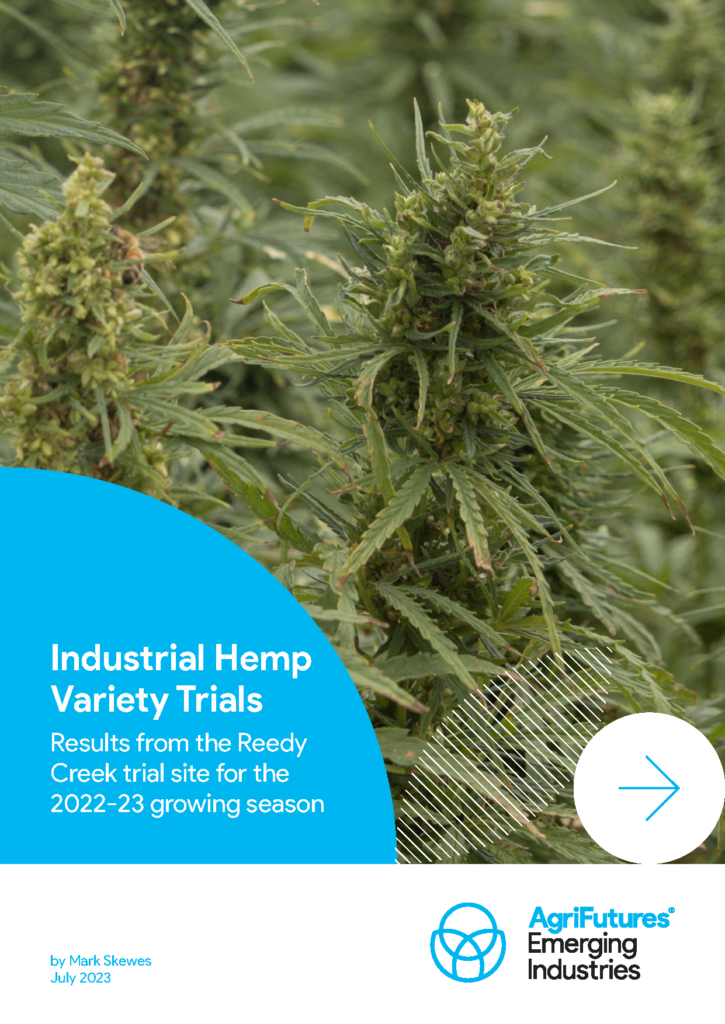AgriFutures Australia has recognised the potential for significant growth in the industrial hemp (Cannabis sativa L.) sector due to the plant’s wide range of sustainable applications and uses. Against this backdrop, the AgriFutures Emerging Industries Program has invested in a series of variety trials to understand the crop’s performance across Australia.
The aim of the Industrial Hemp Variety Trials (IHVT) program is to provide Australian hemp growers with essential data by evaluating grain and dual-purpose hemp varieties appropriate for different regions throughout Australia. To accomplish this, trial sites have been set up in multiple locations across Australia, encompassing the Northern Territory, South Australia (2), Tasmania, Victoria, Western Australia (2), New South Wales and Queensland.
The 2022-23 Reedy Creek (Limestone Coast, South Australia) trial was the second in a planned series of three trials and consisted of 10 varieties and two times of sowing, with four replicates of each treatment. Some of the seed for sowing was of poor quality, with low germination and low seedling vigour leading to poor establishment and lower-than-desired plant density in some varieties.
Grain yields for all varieties averaged less than 1.0 t/ha, with CRS-1 producing significantly higher yield. Average grain yield across varieties was higher in TOS 1 (9 December 2022) than TOS 2 (6 January 2023), however grain yield was not linked to season length. The seed variety Ruby produced the heaviest grains and Katani produced the lightest. Grain weight was influenced by variety and not sowing time.
Grain bulk density was influenced by variety alone; the group with the highest bulk density included Bialobrzeskie, Fedora 17, Henola and Ruby. Ruby and Fibror 79 produced the highest protein content, with TOS 2 having higher content than TOS 1.
On average, TOS 2 produced grain with higher oil content, with Ruby producing the highest oil content of all varieties. Longer growing season contributed to taller plants at harvest and higher dry matter production in TOS 2.
The best-performing variety across a range of grain production and quality metrics in 2022-23 was CRS-1, closely followed by CFX-2, Fedora 17 and Ruby.
Results from the 2022-23 Reedy Creek trial were compared with those from the 2021-22 Maaoupe trial. Maaoupe is 70 km southeast of Reedy Creek. Results indicated crop growth and yield (both dry matter and grain) were reduced in 2022-23 (Reedy Creek) compared to 2021-22 (Maaoupe). Soil conditions at the two sites was the key reason for the difference in growth and yield. At both locations, CRS-1 and Henola produced higher yields compared to other varieties, indicating they may be well-suited to the region.





